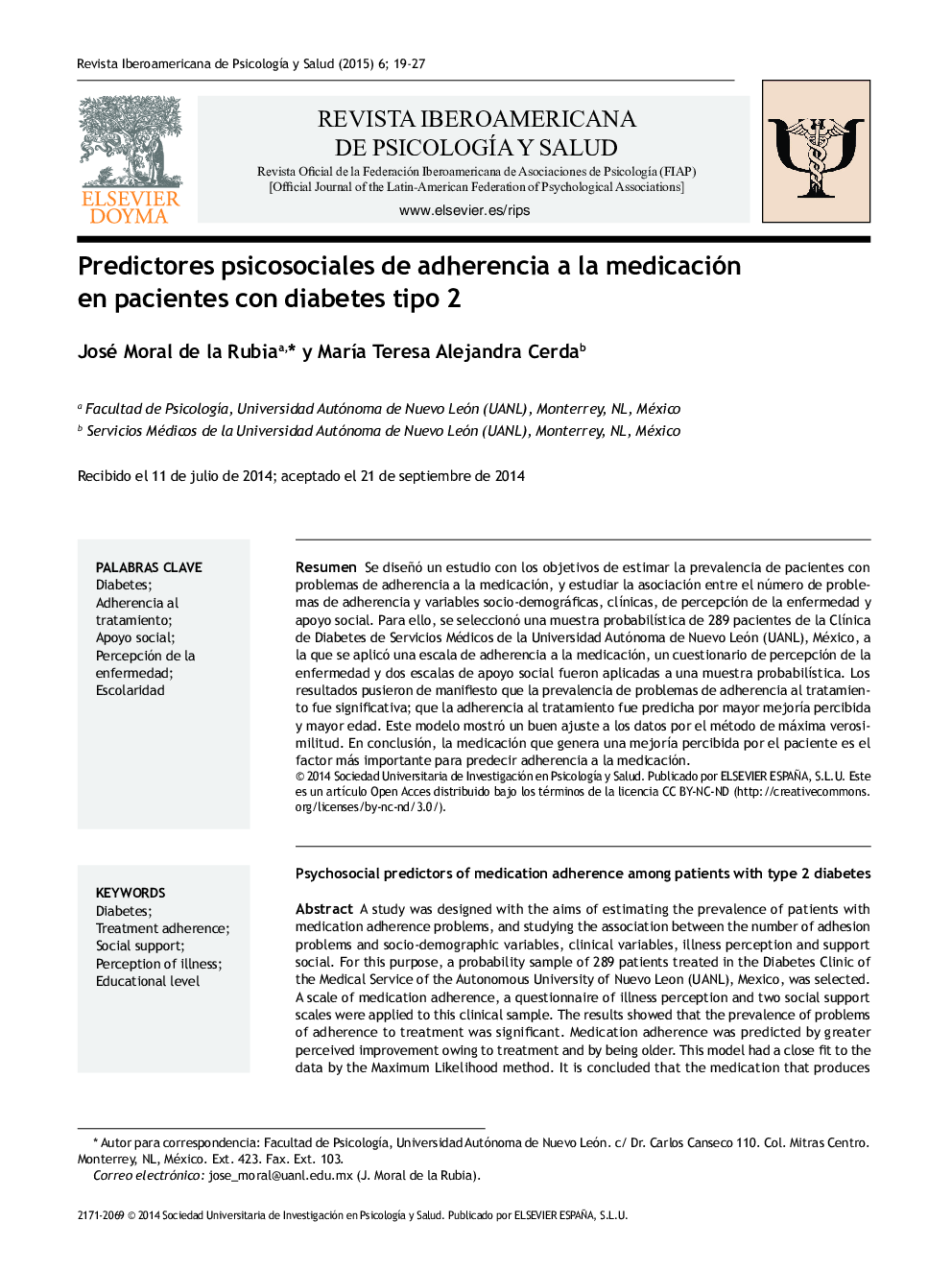| کد مقاله | کد نشریه | سال انتشار | مقاله انگلیسی | نسخه تمام متن |
|---|---|---|---|---|
| 895216 | 914618 | 2015 | 9 صفحه PDF | دانلود رایگان |
ResumenSe diseñó un estudio con los objetivos de estimar la prevalencia de pacientes con problemas de adherencia a la medicación, y estudiar la asociación entre el número de problemas de adherencia y variables socio-demográficas, clínicas, de percepción de la enfermedad y apoyo social. Para ello, se seleccionó una muestra probabilística de 289 pacientes de la Clínica de Diabetes de Servicios Médicos de la Universidad Autónoma de Nuevo León (UANL), México, a la que se aplicó una escala de adherencia a la medicación, un cuestionario de percepción de la enfermedad y dos escalas de apoyo social fueron aplicadas a una muestra probabilística. Los resultados pusieron de manifiesto que la prevalencia de problemas de adherencia al tratamiento fue significativa; que la adherencia al tratamiento fue predicha por mayor mejoría percibida y mayor edad. Este modelo mostró un buen ajuste a los datos por el método de máxima verosimilitud. En conclusión, la medicación que genera una mejoría percibida por el paciente es el factor más importante para predecir adherencia a la medicación.
A study was designed with the aims of estimating the prevalence of patients with medication adherence problems, and studying the association between the numberof adhesion problems and socio-demographic variables, clinical variables, illness perception and support social. For this purpose, a probability sample of 289 patients treated in the Diabetes Clinic of the Medical Service of the Autonomous University of Nuevo Leon (UANL), Mexico, was selected. Ascale of medication adherence, a questionnaire of illness perception and two social support scales were applied to this clinical sample. The results showed that the prevalence of problems of adherence to treatment was significant. Medication adherence was predicted by greater perceived improvement owing to treatment and by being older. This model had a close fit to the data by the Maximum Likelihood method. It is concluded that the medication that produces improvement perceived by the patient is the most important variable to predictive the medication adhesion.
Journal: Revista Iberoamericana de Psicología y Salud - Volume 6, Issue 1, January 2015, Pages 19–27
